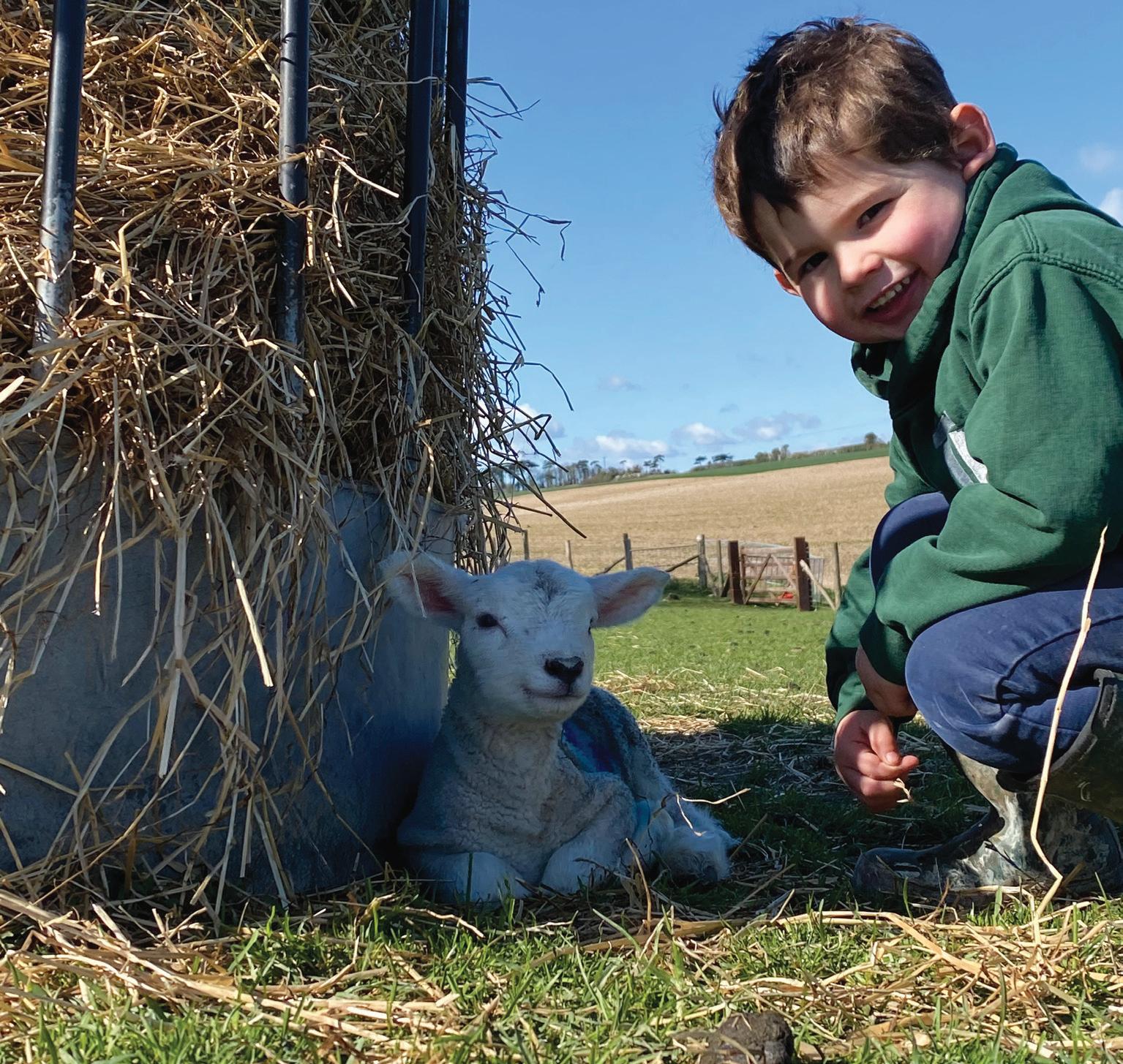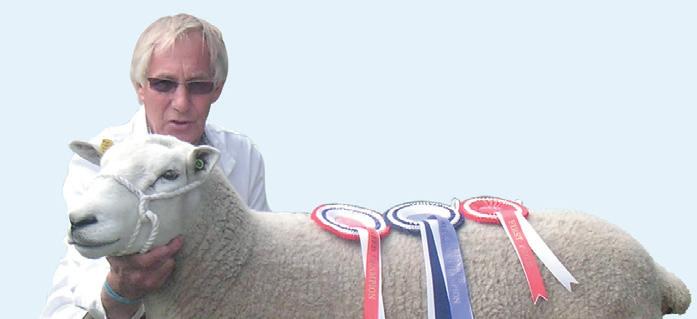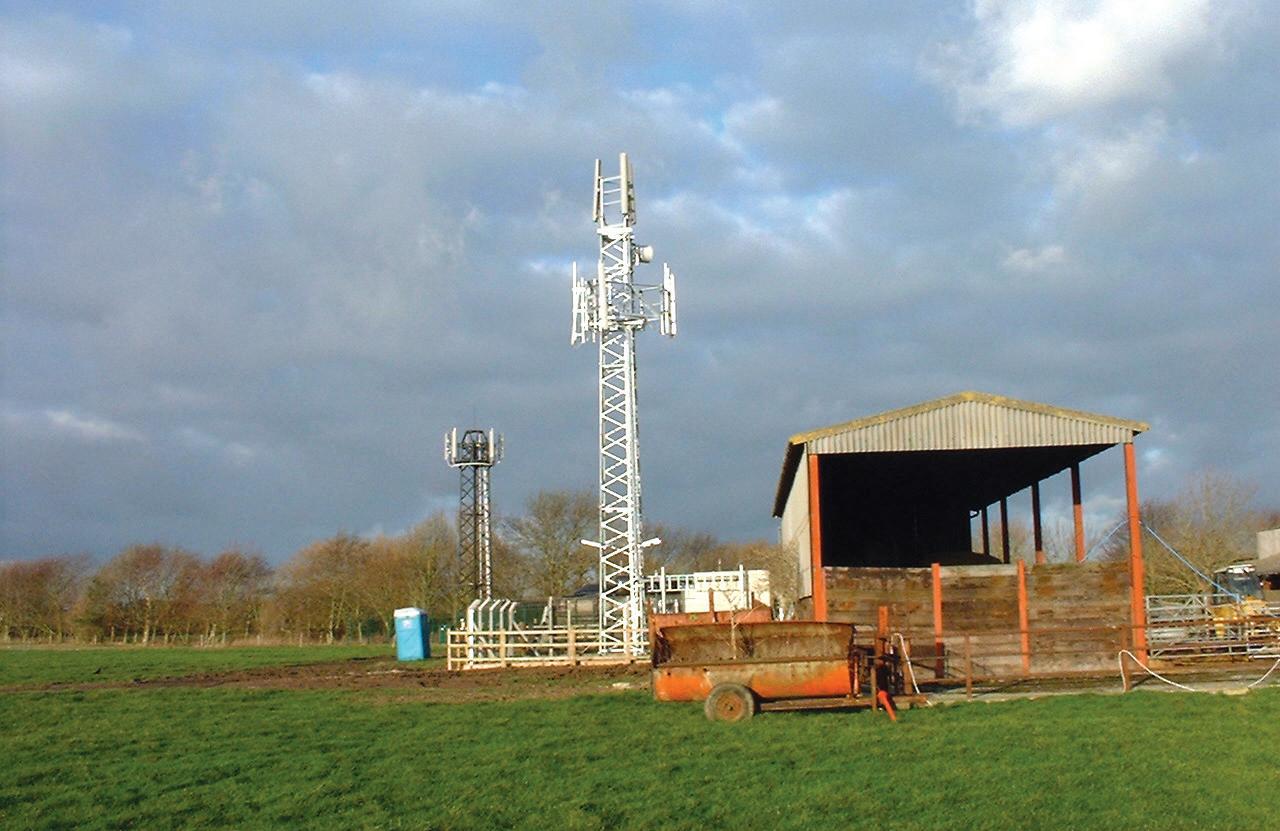
7 minute read
SARAH CALCUTT
RESILIENCE – HOW DO WE INVEST IN THE RIGHT HUMAN CAPITAL?
At the inaugural James Nichols lecture at the 88th Marden Fruit Show Society AGM, Professor Louise Manning excelled in getting everyone to think. James would have enjoyed her lecture; he was a man who always had the facts at his fi nger tips and enjoyed a good debate and Louise delivered fi gures, SARAH CALCUTT
Executive Chair, National Fruit Show
challenges and some good ideas on a way ahead for the sector.
If you look in the dictionary, defi nitions of resilience talk about the ability to survive a shock. This doesn’t really work in farming systems – food is produced in a natural world where it can survive a shock and then return to a steady state. Unless you are a farmer whose crop is decimated by weather, she supposed.
Every business, not just a farming one, has to be able to survive shocks and squeezes. We have had Brexit, Covid-19, lockdown and frost, all of which are shocks. Added to this are the fi nancial squeezes, imposed by a supply chain which is itself suff ering from shock, combined with a concerning long-term fi nancial pressure. Professor Manning talked about the three aspects of resilience:
The buff er capacity – where you might have enough capacity to have the resources to survive the shock. The average borrowing of a farmer is about the same as the average mortgage; the fl exibility provided by a good relationship with your bank manager has been a long term buff er for fruit growers.
Adaptive resilience – how can you adapt your business to survive post lockdown, post fi nancial shock. What happens when there is no crop?
Transformation – as our ways of working are challenged, how do we best respond? Louise raised a really challenging point on transformation; are challenges around our lack of labour going to stimulate the kind of transformation experienced after the fi rst world war, when the numbers of farm workers were reduced so dramatically by war, the fi nancial depression and the Spanish fl u epidemic?
Perhaps our purpose will be transformed by policy? Targeting around net zero and zero emissions business models will deliver a focus on our carbon sequestration potential. How invested are we in renewable energy, rainwater capture, the reduction of our water footprints and how our personal business off sets reduce production impact?
On net zero, Louise questioned whether this was ‘Business’ wanting business as usual and whether we (the fruit sector) might benefi t from their off set; would there be an opportunity to provide carbon credits as part of our ‘public good’ requirement in policy? Just think about the 269,000 acres owned by Bill Gates in the US; this is defi nitely a natural capital investment, he’s creating the biggest agri-food technology test bed in the world.
Looking at the impacts of wider society, Louise directed us to have a look at the emerging literature around Generation Z, the impact of Greta Thunberg and the profi le of self-identifi cation around food – the non-meat diet based on its impact on health and its perceived impact on the environment rather than welfare grounds. Our messaging on this is very important. The social capital is incredibly valuable on what we do in top fruit.
We do, of course, have amazing human capital in our industry; the strength of family businesses, the incredible skillset within fruit farming families that can deliver all that we need as an industry. But how do we recruit our best human capital when the family can’t deliver the myriad skills that a modern business requires? How do we conduct the gap analysis for the skills that we don’t have now and those that we will need in fi ve or ten years? How do we best grow the skills within the business and ensure that we develop to keep pace with them?
I have to force myself to stop while questions still circle my mind. It was such a great opening lecture in the series. James would have had a great list of questions for Louise and a challenge for the audience.

> James Nicholls receiving the 2008 Worshipful Company of Fruiterers Ridley medal for services to the fruit industry
A new structure and a strengthened team that reflects its growing importance to the industry is set to help the National Fruit Show approach its 100th anniversary in great shape.
The 88th annual general meeting of the show heard newly-appointed executive chair Sarah Calcutt outline plans for this year’s show – which will be a physical event complete with fruit competition and dinner – and reveal changes aimed at reinforcing the show’s already high national profile.
The board of trustees has been increased from
NEW SPONSORS,
NEW STRUCTURE AND A CENTENARY VISION
four to eight, with Edward Newling representing the interests of East Midlands growers and Jonathan Blackman joining on behalf of the West Midlands, while Kathleen Kelliher from DEFRA will be contributing valuable policy insights. Clare Seymour has also joined the trustees with responsibility for sponsors and exhibitors.
“The strengthened board reflects the show’s need for additional professional input but also highlights the fact that people from outside the area are keen to be seen to be part of this successful, dynamic, highly regarded event,” Sarah Calcutt told South East Farmer.
With all Covid-19 precautions being carefully followed, the Marden Fruit Show Society will be organising a two-day event on 21 and 22 October 2021 at the Kent Event Centre, Detling. The show will again include a dinner, while much of the stand space has already been snapped up.
The well-attended online annual meeting was told that the increasingly popular Engage Agro-sponsored cider competition will be held again this year, while the show will benefit from a new sponsor, Worldwide Fruit, after Norman Collett and Avalon Produce stood down after an impressive 20 years in that role.
Sarah, who will now draw a small salary as executive chair after devoting many years of voluntary support to the show, has been charged with overseeing a long-term ‘centenary plan’ development strategy intended to make sure the show celebrates its 2033 centenary in good shape.
She will be assisted by two vice-chairs, with Annette Bardsley of Bardsley, England, overseeing the show’s education programme and Estera Amesz from AG Recruitment looking after its commercial interests.
Sarah stressed that while there were significant changes to the setup, the show would still be run “by growers, for growers”, adding: “We are just turning up the dial.”
She went on: “The National Fruit Show, at the heart of our industry over 87 years, was founded on a promise to showcase the best fruit. We’re still doing that nearly a century later, but the time has come to change the format of the show without losing its unique ‘feel’. There is so much that is positive, energetic and resilient in this industry and we have to bring its special atmosphere to a larger audience. To do that, we have to reform ourselves and tweak the show to enhance the brilliant opportunity that it is.”
Steve Maxwell, chief executive of Worldwide Fruit, praised the role of the National Fruit Show in bringing the industry together and said his company “wanted to be a full part of the action in the years ahead”. He added: “The pandemic has shown how face-to-face meetings, shows and exhibitions are a crucial part of the exchange of knowledge needed by our industry, so we want to help secure the future of this show, which is rightly proud of its ‘by growers, for growers’ ethos.”
The online annual meeting, hosted and sponsored by the Rural Policy Group, was reminded of the success of this year’s virtual fruit show, which Marden Fruit Show Society President Teresa Wickham said had been a great success in “a very challenging year”. She said it had been important to keep the show’s profile high “when the world was turned upside down”.
This year’s show will feature a new award which will commemorate Jon Jones, who worked for Richard Hochfeld, and recognise the excellent work of someone within the industry. The Bonanza Prize, another popular element of the show, is this year being sponsored by renewable energy specialists Harvest Green Developments.
Professor Tim Laing has already been signed up as one of the seminar speakers, while the show will again benefit from the support of the Worshipful company of Fruiterers and feature contributions from livery scholars.
Norma Thompsett, well known to National Fruit Show goers, has been asked to expand the show’s competition classes and will be talking to growers about new horticultural classes including British olives, melons and grapes.
A new website at www.nationalfruitshow.org, expected to be launched in mid-May, will help to streamline bookings and monitor competition entries as well as acting as the ‘shop window’ for the event’s charitable, education and industry facing work.
This year’s show will again feature the popular dinner and dance on the evening of the first show day, with the music from Bullshed sponsored by South East Farmer.
Better people Best placed
SEASONAL LABOUR PLACEMENT
ag recruitment.eu|01227 806 789










